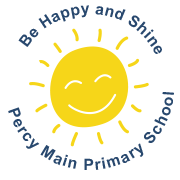Science
CUSP Science Curriculum Overview at Percy Main Primary School
CUSP Science precisely follows the units outlined in the National Curriculum. CUSP Science is infused with evidence-led practice and enriched with retrieval studies to ensure long-term retention of foundational knowledge. This ambitious curriculum places knowledge, vocabulary, working and thinking scientifically at the heart of our principles, structure and practice. Through studying CUSP science, pupils become ‘a little more expert’ as they progress through the curriculum, accumulating, connecting and making sense of the rich substantive and disciplinary knowledge.
- WHAT PUPILS WILL KNOW
Substantive knowledge - this is the subject knowledge and explicit vocabulary used to learn about the content. Common misconceptions are explicitly revealed as non-examples and positioned against known and accurate content. In CUSP Science, an extensive and connected knowledge base is constructed so that pupils can use these foundations and integrate it with what they already know. Misconceptions are challenged carefully and in the context of the substantive and disciplinary knowledge. In CUSP Science, it is recommended that misconceptions are not introduced too early, as pupils need to construct a mental model in which to position that new knowledge.
- WHAT PUPILS WILL DO
Disciplinary knowledge – this is knowing how to collect, use, interpret, understand and evaluate the evidence from scientific processes. This is taught. It is not assumed that pupils will acquire these skills by luck or hope. Pupils construct understanding by applying substantive knowledge to questioning and planning, observing, performing a range of tests, accurately measuring, comparing through identifying and classifying, using observations and gathering data to help answer questions, explaining and reporting, predicting, concluding, improving, and seeking patterns. We call it ‘Working Scientifically.’ CUSP Science provides Working Scientifically coverage maps to check the balance of provision in KS1, Lower and Upper KS2. They are also present in the Whole Class Assessment toolkits.
Scientific analysis is developed through IPROF criteria. We call it ‘Thinking Scientifically.’
- identifying and classifying
- pattern seeking
- research
- observing over time
- fair and comparative testing
- Substantive concepts include concrete examples, such as ‘plant’ or more abstract ideas, such as ‘biodiversity’. Concepts are taught through explicit vocabulary instruction as well as through the direct content and context of the study.
PRINCIPLES
A guiding principle of CUSP Science is that each study draws upon prior learning. For example, in the EYFS, pupils may learn about The Natural World through daily activities and exploring their locality and immediate environment. This is revisited and positioned so that new and potentially abstract content in Year 1, such as Animals, including humans, is related to what children already know. This makes it easier to cognitively process. This helps to accelerate new learning as children integrate prior understanding.
CUSP Science is organised into three distinct subject domains: biology, physics and chemistry. Where inter-disciplinary concepts are encountered, such as the particle model, these are taught explicitly and connected across science domains.
CUSP Science has sequenced the national curriculum into meaningful and connected ‘chunks’ of content to reduce the load on the working memory as well as creating coherent and strong long-term memories. The sequence of substantive and disciplinary knowledge enables pupils to become ‘more expert’ with each study and grow an ever broadening and coherent mental model of the subject. This guards against superficial, disconnected and fragmented scientific knowledge and weak disciplinary knowledge. High frequency, multiple meaning words (Tier 2) are taught explicitly and help make sense of subject specific words (Tier 3). Each learning module in CUSP Science has a vocabulary module with teacher guidance, tasks and resources to enhance and deepen understanding.
CUSP Science is planned so that the retention of knowledge is much more than just ‘in the moment knowledge’. The cumulative nature of the curriculum is made memorable by the implementation of Bjork’s desirable difficulties, including retrieval and spaced retrieval practice, word building and deliberate practice tasks. This powerful interrelationship between structure and research-led practice is designed to increase substantive knowledge and accelerate learning within and between study modules. That means the foundational knowledge of the curriculum is positioned to ease the load on the working memory: new content is connected to prior learning. The effect of this cumulative model supports opportunities for children to associate and connect significant scientific concepts, over time, and with increasing expertise and knowledge.
CUSP Science deliberately pays attention and values the importance of subject content as well as the context it is taught in. Common scientific misconceptions are identified in all CUSP Science learning modules. These misconceptions are made explicit to pupils. Children draw upon substantive and disciplinary knowledge to reason and practise acquiring the conception, whilst repelling the misconceptions. Examples and non-examples are powerful ways of saying what something is and what something isn’t.
CUSP Science values the study of scientists from the past as well as promoting diverse present-day role models in the field. These studies help us to learn how they used, at that time, their substantive and disciplinary knowledge to develop a conception. This illuminates how misconceptions can permeate substantive knowledge and appear to be a known truth. An example of this is the study of Maria Merion in Year 5, who was born in Germany in 1667. She observed and drew insects going through biochemical metamorphosis. She challenged the misconception that all insects were evil, born from mud and were the work of the devil. Further examples of contextual misconceptions and refinement of conceptions can be seen in the study of Galen’s views about blood circulation in AD 157 and William Harvey’s findings in 1602.
CUSP fulfils and goes well beyond the expectations of the National Curriculum as we believe there is no ceiling to what pupils can learn if the architecture and practice is founded in evidence-led principles.




